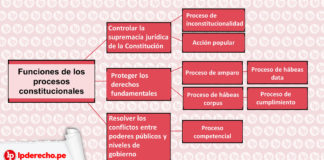Fundamento destacado: 220. El Tribunal observa además que los relatos de los demandantes y las pruebas proporcionadas por sus padres también contenían información sobre otros niños que presuntamente habían sido víctimas de abuso y niños que presuntamente habían cometido abuso. A este respecto, observa que incluso si no fuera posible incoar procedimientos penales contra niños menores de edad penal, algunos de los actos descritos por los demandantes como perpetrados por otros niños equivalían a malos tratos en el sentido del artículo 3 de la Convención y la violencia en el sentido del artículo 19 de la Convención sobre los Derechos del Niño (véase el párrafo 124 supra); por lo tanto, las autoridades estaban obligadas por su obligación procesal de arrojar luz sobre los hechos alegados por los solicitantes. Sin embargo, a pesar de estos informes, las investigaciones se limitaron a entrevistar y aplicar cuestionarios a algunos niños que aún vivían en el orfanato, en un ambiente que podía influir en sus respuestas (sobre las condiciones en que se desarrollaron esas entrevistas, véase el párrafo 211 supra).
De hecho, el Tribunal observa que las autoridades búlgaras no intentaron entrevistar a todos los niños nombrados por los demandantes que habían abandonado el orfanato mientras tanto (véanse, por ejemplo, los párrafos 25 y 28 in fine), ya sea directamente o, si necesario, mediante el recurso a los mecanismos de cooperación judicial internacional.
[Traducción LP]
220. The Court further notes that the applicants’ accounts and the evidence furnished by their parents also contained information concerning other children who had allegedly been victims of abuse and children alleged to have committed abuse. In that connection it observes that even if it was not possible to institute criminal proceedings against children under the age of criminal responsibility, some of the acts described by the applicants as having been perpetrated by other children amounted to ill-treatment within the meaning of Article 3 of the Convention and violence within the meaning of Article 19 of the Convention on the Rights of the Child (see paragraph 124 above); hence, the authorities were bound by their procedural obligation to shed light on the facts alleged by the applicants. However, despite these reports, the investigations were limited to interviewing and issuing questionnaires to a few children still living in the orphanage, in an environment that was liable to influence their answers (as regards the conditions in which those interviews took place, see paragraph 211 above). Indeed, the Court notes that the Bulgarian authorities did not attempt to interview all of the children named by the applicants who had left the orphanage in the meantime (see, for instance, paragraphs 25 and 28 in fine above), whether directly or, if necessary, through recourse to international judicial cooperation mechanisms.
[Idioma original]
EUROPEAN COURT OF HUMAN RIGHTS
GRAND CHAMBER
CASE OF X AND OTHERS v. BULGARIA
(Application n° 22457/16)
In the case of X and Others v. Bulgaria,
The European Court of Human Rights, sitting as a Grand Chamber composed of:
Robert Spano, President,
Linos-Alexandre Sicilianos,
Jon Fridrik Kjølbro,
Ksenija Turković,
Paul Lemmens,
Yonko Grozev,
Paulo Pinto de Albuquerque,
Faris Vehabović,
Dmitry Dedov,
Iulia Antoanella Motoc,
Carlo Ranzoni,
Georgios A. Serghides,
Marko Bošnjak,
Tim Eicke,
Péter Paczolay,
María Elósegui,
Raffaele Sabato, judges,
and Marialena Tsirli, Registrar,
Having deliberated in private on 15 January 2020 and on 9 September 2020,
Delivers the following judgment, which was adopted on the last-mentioned date:
PROCEDURE
1. The case originated in an application (no. 22457/16) against the Republic of Bulgaria lodged with the Court under Article 34 of the Convention for the Protection of Human Rights and Fundamental Freedoms (“the Convention”) by five Italian nationals on 16 April 2016. The President of the Section to which the case had been assigned, and subsequently the President of the Grand Chamber, acceded to the applicants’ request not to have their names disclosed (Rule 47 § 4 of the Rules of Court).
2. The applicants were represented by Mr F. Mauceri, a lawyer practising in Catania. The Bulgarian Government (“the Government”) were represented by their Agent, Ms R. Nikolova, of the Ministry of Justice.
3. The five original applicants, a couple and their minor children, complained under Articles 3, 6, 8 and 13 of the Convention of the sexual abuse to which the three children had allegedly been subjected while living in an orphanage in Bulgaria, and of the lack of an effective investigation in that regard.
[Continúa…]



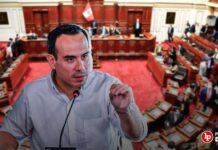

![Precedente OEFA sobre la delimitación de incumplimientos de límites máximos permisibles de efluentes [Res. 00001-2026-OEFA/CD]](https://img.lpderecho.pe/wp-content/uploads/2022/10/oefa-contaminacion-LPDerecho-218x150.png)
![La autoridad debe individualizar el verbo que corresponde al hecho atribuido: no se determinó en cuál de los verbos (dañar, obstruir, ocupar, utilizar o desviar) se subsume el hecho de «cerrar el cauce natural de la quebrada Ramada con bloquetas de concreto y un portón de metal» [Resolución 0342-2021-ANA/TNRCH, f. j. 6.4]](https://img.lpderecho.pe/wp-content/uploads/2026/01/Autoridad-Nacional-del-Agua-ANA-LPDerecho-218x150.jpg)
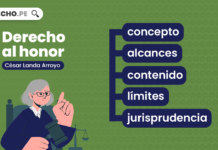

![Ley Orgánica del Registro Nacional de Identificación y Estado Civil (Ley 26497) [actualizada 2025]](https://img.lpderecho.pe/wp-content/uploads/2025/05/Ley-organica-del-registro-nacional-de-identificacion-y-estado-civil1-LPDERECHO-218x150.jpg)




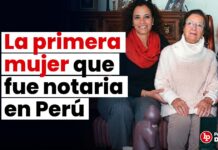




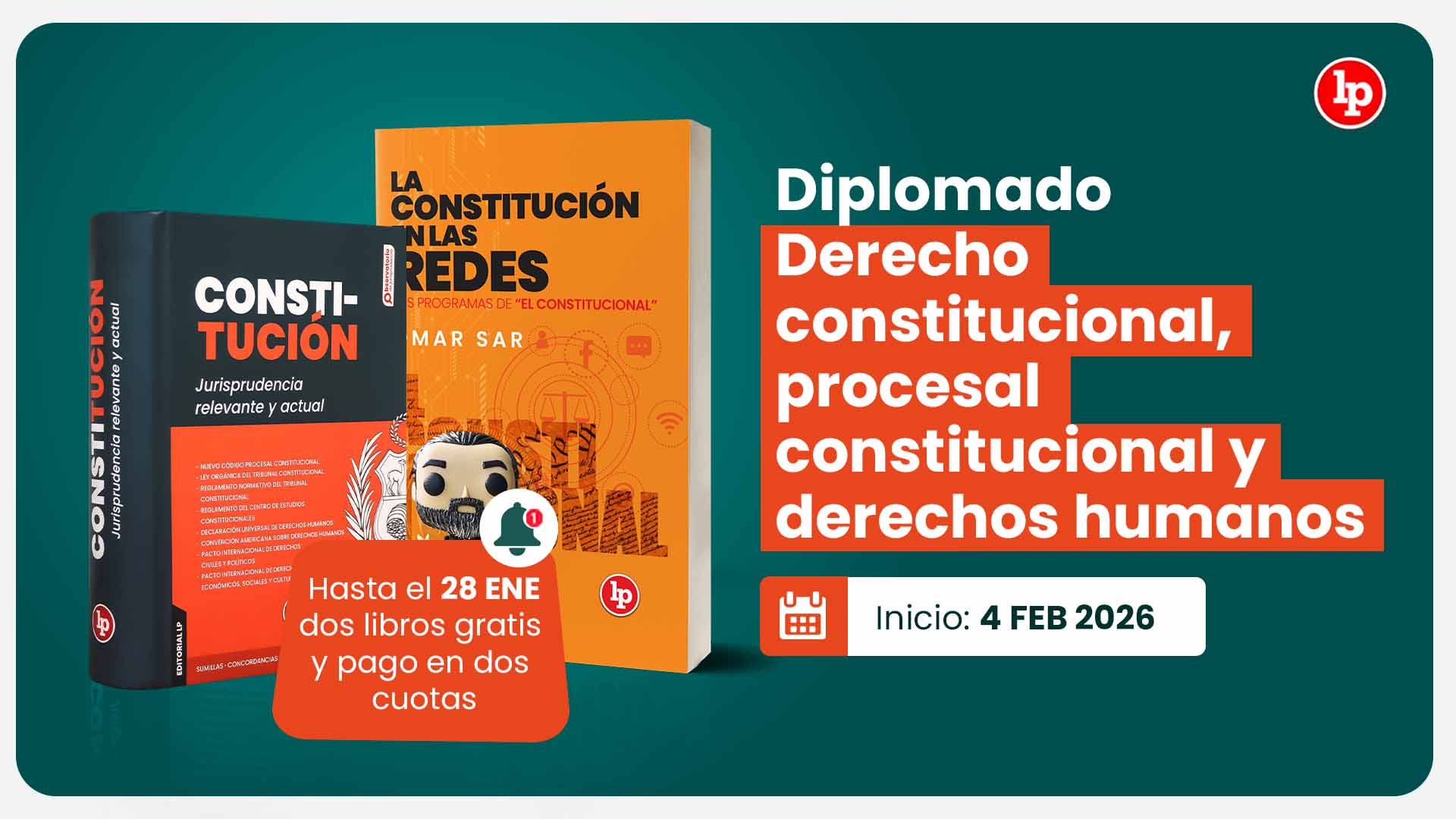
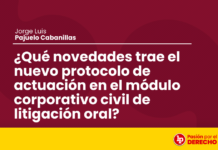
![Código Civil peruano [actualizado 2026]](https://img.lpderecho.pe/wp-content/uploads/2024/05/VENTA-OFICIAL-CODIGO-CIVIL-2024-LPDERECHO-218x150.jpg)
![Hospital debe pagar S/700 000 por daño moral y personal a familiares de mujer embarazada que falleció luego de caerse por negligencia del personal médico y auxiliar, lo que provocó una cesárea de emergencia que fue mal practicada, y que trajo como resultado el nacimiento de un bebé huérfano de madre y con graves secuelas de salud (LAUDO) [Exp. 082-2021-ARB-OTRO]](https://img.lpderecho.pe/wp-content/uploads/2023/01/embarazo-embarazada-gestante-gestacion-LPDerecho-218x150.png)



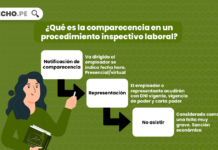
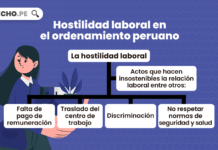
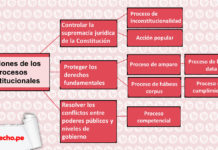



![Reglamento de la Ley que permite a funcionarios consulares designar personas de apoyo para adultos mayores y con discapacidad [Decreto Supremo 003-2026-RE]](https://img.lpderecho.pe/wp-content/uploads/2024/02/banner-notario-sellar-documento-LP-derecho-218x150.jpg)
![Modifican el calendario oficial de la aplicación progresiva del Código de Responsabilidad Penal de Adolescentes [Decreto Supremo 002-2026-JUS]](https://img.lpderecho.pe/wp-content/uploads/2024/03/ministerio-de-justicia-y-derechos-humanos-minjus-minjusdh-2-LPDerecho-218x150.jpg)
![Código Procesal Penal peruano [actualizado 2026]](https://img.lpderecho.pe/wp-content/uploads/2024/02/VENTA-CODIGO-PENAL-BANNER-POST-TAPA-DURA-LPDERECHO-218x150.jpg)
![Código Penal peruano [actualizado 2026]](https://img.lpderecho.pe/wp-content/uploads/2024/05/VENTA-CODIGO-PENAL-LPDERECHO-218x150.jpg)

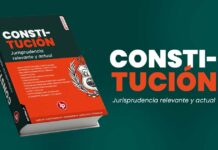






![[VÍDEO] ¿Quieres postular a la Fiscalía? Estas son las preguntas que hacen en las entrevistas](https://img.lpderecho.pe/wp-content/uploads/2021/10/postular-fiscalia-preguntas-entrevista-LP-218x150.jpg)


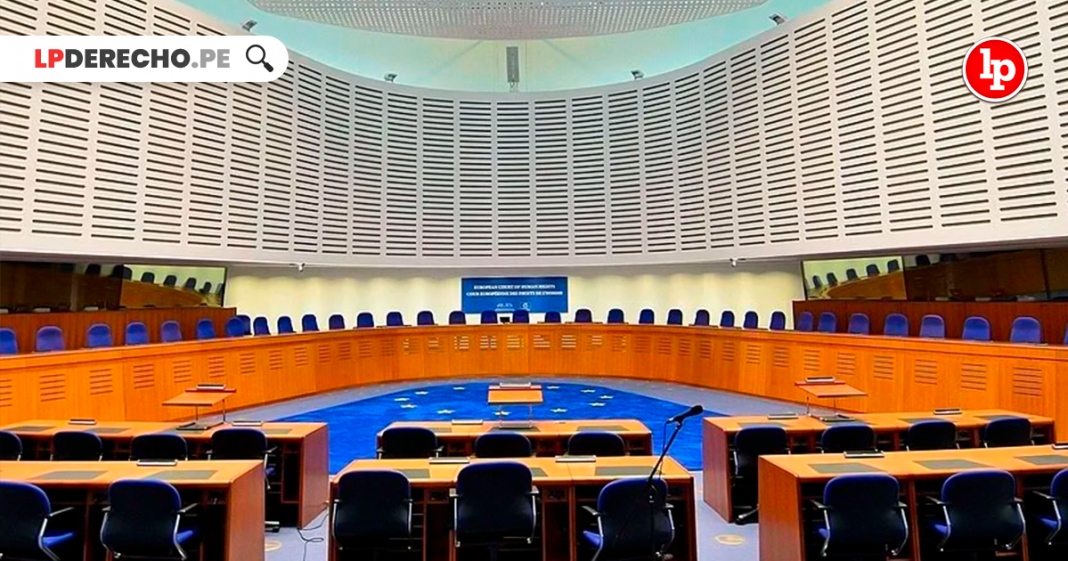

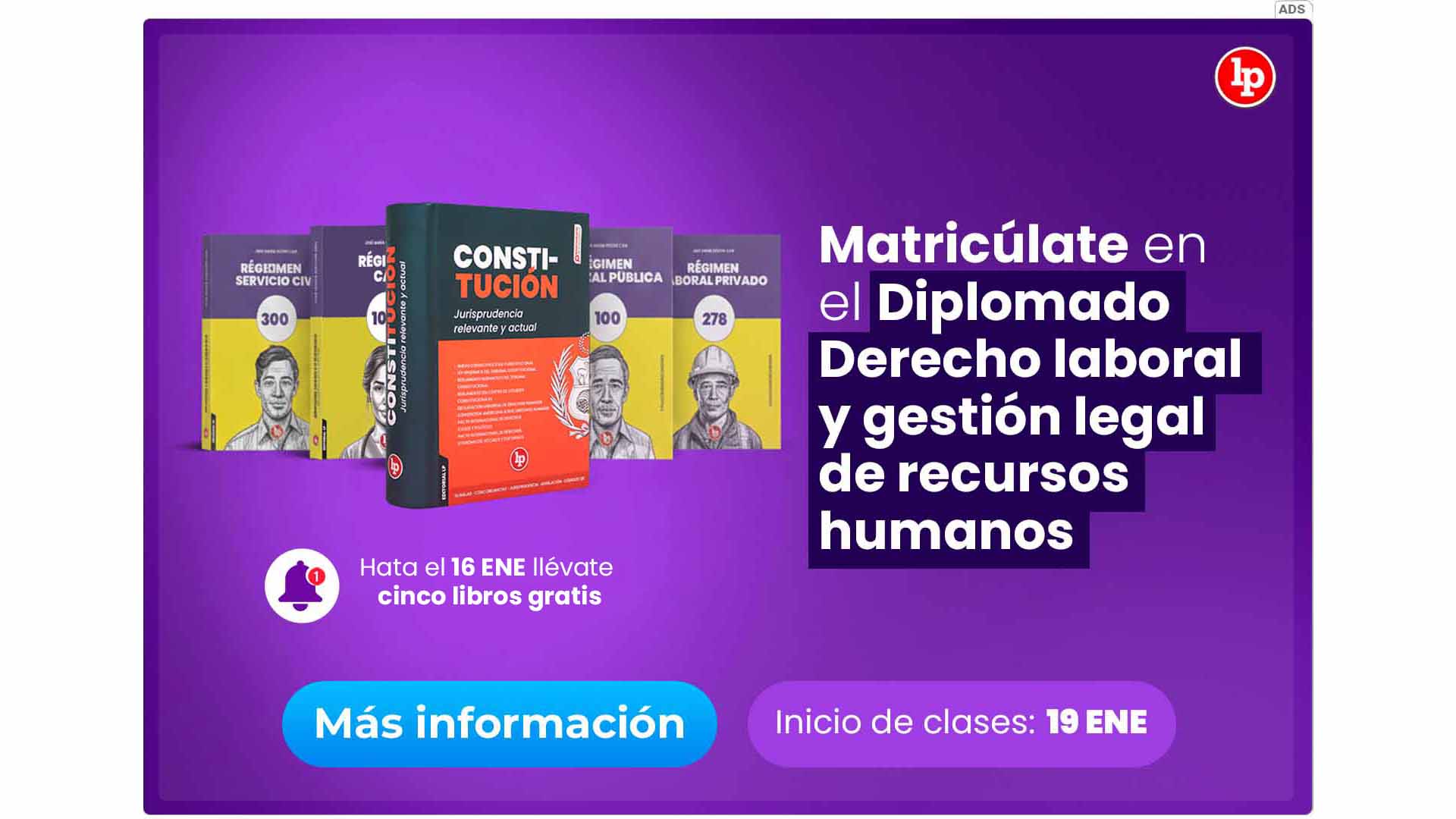
![Tocamientos en agravio de menor: El prevalimiento por parentesco familiar no debe entenderse limitado a determinados grados de afinidad o consanguinidad, sino condicionado a la existencia de una relación que otorgue al agente una posición de autoridad sobre la víctima que genere en esta una especial confianza, que finalmente es lo que incrementa el reproche penal [Casación 368-2025, Lambayeque, f. j. 6]](https://img.lpderecho.pe/wp-content/uploads/2025/07/MAZO-JUEZ-DOCUMENTO-LPDERECHO-218x150.jpg)

![Código Penal peruano [actualizado 2026]](https://img.lpderecho.pe/wp-content/uploads/2024/05/VENTA-CODIGO-PENAL-LPDERECHO-100x70.jpg)
![Modifican Código Procesal Penal: Policía podrá revisar equipos informáticos en casos de flagrancia [DL 1698]](https://img.lpderecho.pe/wp-content/uploads/2025/05/policia-pnp-celular-LPDerecho-100x70.jpg)

![Código Procesal Penal peruano [actualizado 2026]](https://img.lpderecho.pe/wp-content/uploads/2024/02/VENTA-CODIGO-PENAL-BANNER-POST-TAPA-DURA-LPDERECHO-100x70.jpg)
